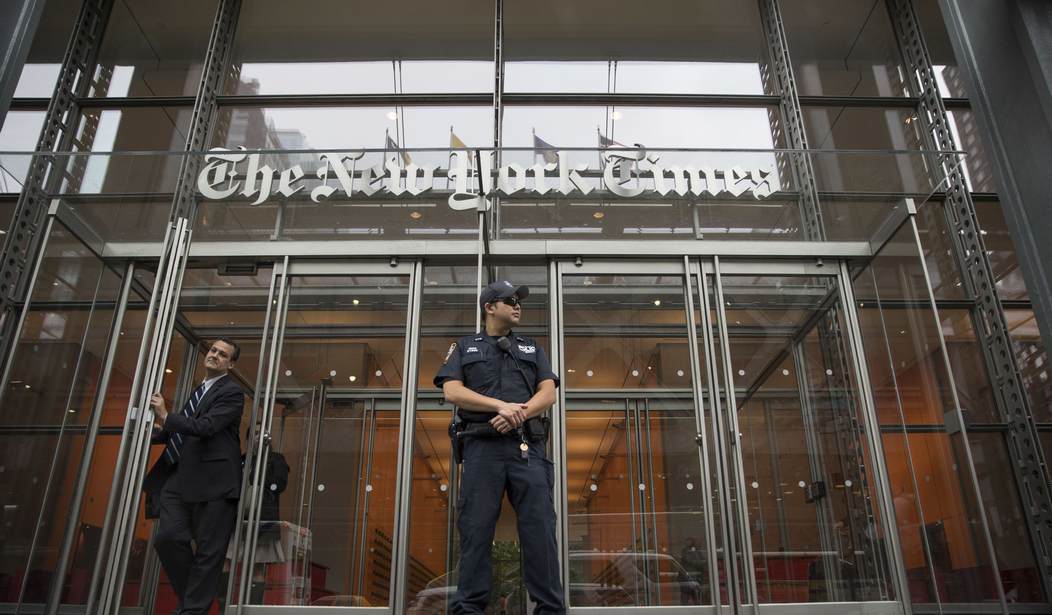The New York Times is retracting large parts of its award-winning hit podcast series Caliphate after it was discovered that the production’s main source was a liar.
Shehroze Chaudhry, a Canadian who claimed to have been radicalized online and went to Syria, joining ISIS and becoming an executioner, was arrested by Canadian authorities last October and charged with perpetrating a terrorism hoax. He had given the Times terrorism reporter detailed accounts of his life in ISIS, including the story that he executed two prisoners.
The award-winning Times terrorism reporter, Rukmini Callimachi, fell for it hook, line, and sinker.
“We fell in love with the fact that we had gotten a member of ISIS who would describe his life in the caliphate and would describe his crimes,” New York Times executive editor Dean Baquet tells NPR in an interview on Thursday. “I think we were so in love with it that when when we saw evidence that maybe he was a fabulist, when we saw evidence that he was making some of it up, we didn’t listen hard enough.”
Caliphate proved to be a smash hit and garnered numerous awards over the last two years. It made Callimachi a star and a much sought-after personality.
But there were warning signs and red flags all over the place that Callimachi and the “layers of fact-checkers” at the Times failed to heed.
The Times resisted revisiting Chaudhry’s story until his arrest this fall, when Canadian officials charged him with lying about participating in terrorist activities. It then published the findings into Chaudhry’s activities by its distinguished national security reporter, Mark Mazzetti, who cast significant doubt on the Canadian’s claims.
A separate internal review of Caliphate‘s reporting process was led by senior investigative editor Dean Murphy. He found that Callimachi and her editors repeatedly failed to push hard enough to verify Chaudhry’s claims, Baquet tells NPR.
“They came back and said, ‘If you look at the guy’s story, there is not enough powerful evidence that he was who he claimed to be for us to justify that story,” Baquet says.
Reading between the lines here, it appears that Editor Baquet might have pulled his punches a bit because Callimachi was a woman.
“She’s a powerful reporter who we imbued with a great deal of power and authority,” he says. “She was regarded at that moment as, you know, as big a deal ISIS reporter as there was in the world. And there’s no question that that was one of the driving forces of the story.”
The “driving force of the story” was The Narrative. Any information that conflicted with The Narrative was dismissed or explained away.
At the heart of the episode was an effort to figure out how the pieces of his story might fit together — if the Times was willing to shift the dates involved. One audio editor described that scenario as “Occam’s razor,” suggesting that it was the simplest resolution to their dilemma and therefore probably the right one.
The “simplest solution” was to falsify the dates? When in doubt, make stuff up.
There were other red flags that were ignored by senior management. They had a hit and weren’t going to jeopardize the podcast’s popularity by allowing the truth to seep in. They believed Chaudhry’s claims because they desperately wanted to.
They can spin what happened all they want. They can brag about how they’re handling this journalism disaster to anyone who will listen. But this is what happens when The Narrative becomes more important than the simple facts of a story.
The Times got those facts wrong.










Join the conversation as a VIP Member